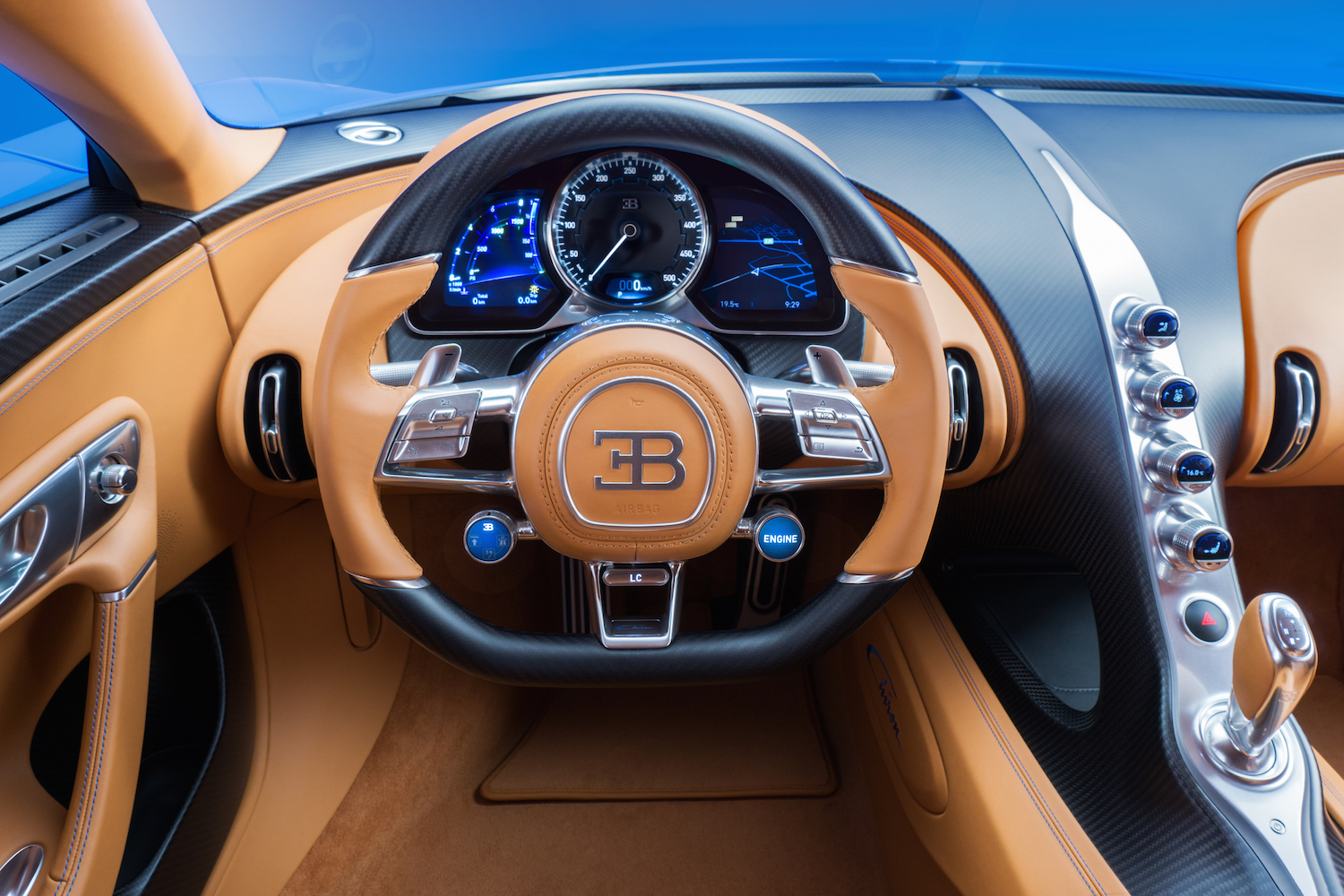In 2005, Bugatti brought a gun to a knife fight in the form of its Veyron supercar. More accurately, Bugatti introduced the world to guns when all it knew was swords and arrows. Over 1,000 horsepower, a 0-to-60 mph sprint below 3.0 seconds, and a top speed of 250 mph were the figures of fantasy.
In the time since that supercar heard round the world, the competition have refined their weapons. Established players like Ferrari, Porsche, and McLaren can match or beat Bugatti’s tired old Veyron and upstarts like Hennessey created their own world-beating monsters.
The king lost its crown.
But now the seasoned emperor is back in a new suit of armour – one that isn’t just shiny, but innovative as well. Today, Bugatti reveals its Chiron supercar, successor to the Veyron and heir to the speed throne. In the automaker’s own words, the Chiron is the world’s first production supercar to wrangle 1,500 horsepower and 1,180 pound-feet of torque.
0-to-60 mph will take less than 2.5 seconds and its new, limited, top speed will hover at 261 mph. Those who are carefully watching the top speed wars know that Hennessey’s Venom set the record at 270 mph recently, but something tells me there’s more speed to be pulled from the Chiron’s reworked quad-turbocharged 8.0-liter W16 engine.
“It is part of human nature to cross boundaries and set new records – to run 100 m faster than ever before, to fly even further into space and to enter new realms. This striving is also our driving force at Bugatti,” said Wolfgang Dürheimer, President of Bugatti Automobiles. “The Chiron is the result of our efforts to make the best even better.”
Those don’t sound like the words of a brand who’s ready to rule a lesser kingdom.
The Chiron is built on a new carbon fibre monocoque chassis, with tires developed specifically for Bugatti and a slew of innovative technologies to make the car handle as well as it rockets to ludicrous speed.
“Our customers form an exclusive group of automobile collectors who are searching for the very best. With the Veyron, they have the best production sports car of the past 10 years,” Dürheimer continues. “This is why their demands and expectations for our next step – the Chiron – were so high.“
Only 500 examples of the Chiron will be built, each costing €2.4 million/$2.61 million USD. Pre-orders are already in process, and the first production units will be available this Fall.











